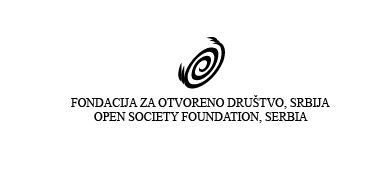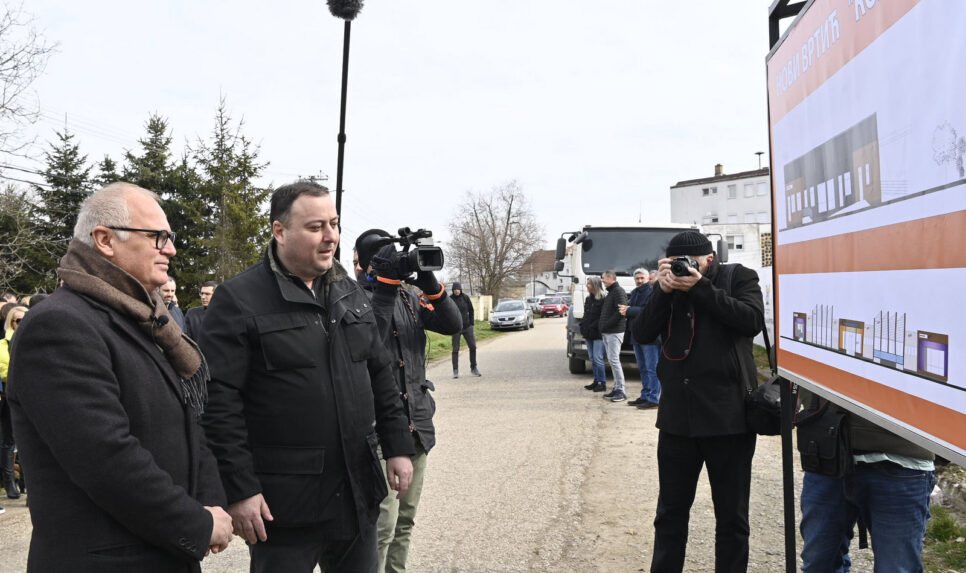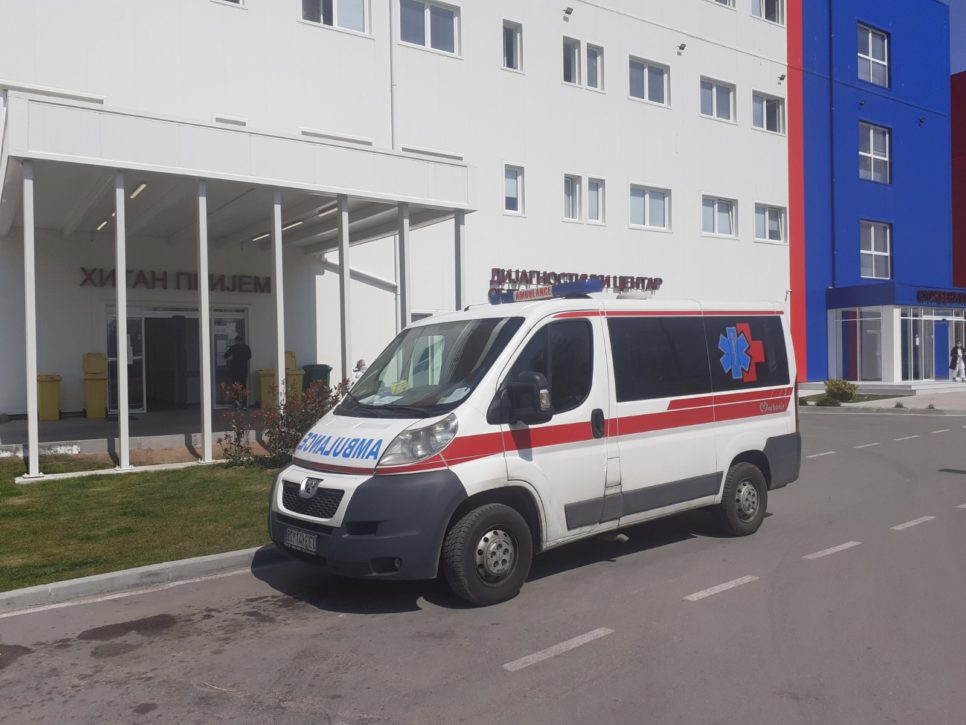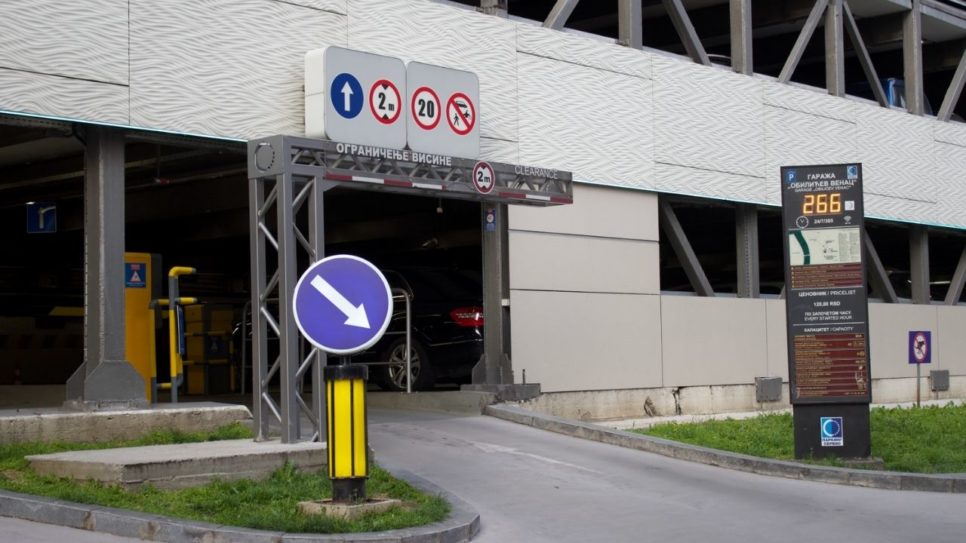In October 2013, an unidentified person reported a suspicious lease involving public officials to the Agency for the Prevention of Corruption (called the Anti-Corruption Agency at the time). The anonymous report says that state-owned telecom provider Telekom Srbija was damaged by the concluding of a contract on leasing space in downtown Novi Sad, specifically an office on Bulevar Oslobođenja Street, one of the busiest and most important commercial streets in the city. The owner of the property is Serbian Progressive Party official Igor Mirović, while the report also presented suspicion that Jorgovanka Tabaković, now the governor of the National Bank of Serbia, assisted the controversial deal.
Mirović and the then CEO of Telekom, Draško Petrović, concluded the contract in January 2008 for an indefinite period of time, with a note that Telekom could not terminate it before 10 years had passed.
The price per square meter was 37.18 euros – 2,000 euros per month in total.
At the time, Jorgovanka Tabaković was the director of Telekom’s Logistics Sector for the territory of Novi Sad and other cities in Vojvodina. Mirović and Tabaković were members of the Serbian Radical Party, which had been a part of the government in Novi Sad until the 2008 election, and Mirović was also the director of the Novi Sad City Construction Bureau.
In late 2010, the then CEO of Telekom, Branko Radujko, concluded an annex to the contract with Mirović which lowered the rent to 1,700 euros. Radujko, who early this year became the head of the Customs Administration, refused to speak to CINS’ journalists.
The lease might not have looked suspicious if Mirović had not been paid the money before the space was even ready to use. Telekom paid for the first year of lease (2008) in advance, and the payments continued even though this company opened a branch office at the location no earlier than in November 2010, that is, almost three years later. In that way, the company paid Mirović 66,000 euros (around 6.3 million dinars) before it even started using the space.
The Center for Investigative Journalism of Serbia (CINS) reveals that the anonymous report was followed by a preliminary investigation that lasted two and a half years and, according to experts, omissions in procedure made by the competent bodies, as well as that in the process of leasing the office space Telekom bypassed the Law on Public Procurement in an unpermitted way, which the police and the prosecutor did not deal with. In a statement to CINS, Jorgovanka Tabaković denied her involvement in the closing of the deal.
CINS managed to get confirmation that Mirović had rented out this office space at least until the end of 2016, thereby earning around 192,000 euros (more than 20 million dinars). It is unknown whether this business cooperation is still under way, but Telekom Srbija has not changed the location of this branch office.

Public procurement without regard for the law
There was a certain procedure in the leasing of office space, one of the former directors at Telekom told CINS, speaking on condition of anonymity. He says that bargaining (negotiation) procedures were carried out in line with the Law on Public Procurement, which required the consent of the then Public Procurement Administration (now the Public Procurement Office).
The head of logistics at the Telekom headquarters (Logistics Department) would issue an order to their people to look for that space together with their coworkers from the local Logistics Sector, in this case the Vojvodina one which is in charge of Novi Sad. They made up the so-called commission.
He adds that it was possible that no one at the local level knew about the search for a location, but points out that everyone used the knowledge of their colleagues from the city in which office space was being sought and their familiarity with the field.
So, the local Logistics Sector would perform preparatory activities, i.e. ask around and find a location, while the Logistics Department arranged the cooperation itself. In his words, if someone from Novi Sad took part in the search for the office space, that person would be appointed by the head of the local Sector, at the Department’s request.
“They (the local Logistics Sector, journalist’s note) served as a connection of sorts in that process.”
The documents CINS received from the Public Procurement Office show that Telekom Srbija addressed them several times between November 2007 and the end of February 2008, for the application of the bargaining procedure.
For example, in November 2007 they requested consent (an opinion) for leasing additional space at the Sports and Business Center Vojvodina (SPENS). They did the same a month later for leasing office space on Bulevar Kralja Aleksandra Street in Belgrade.
However, in the case of lease of Mirović’s office space, Telekom did not do that but rather cited Article 111 of the then valid Law on Public Procurement, which allowed an exception to the rule for procurement in the areas of water management, energy, transportation and telecommunications.
For making the branch office, Telekom also used the shop next to Mirović’s, owned by Vladimir Svilar, son of Rade Svilar, the then director of Apatin Brewery and a Socialist Party of Serbia MP during the Slobodan Milošević regime. The cost of leasing that shop per square meter was about eight euros lower, i.e. Telekom paid 29.63 euros per square meter per month.
Vladimir Svilar told CINS that he was still leasing out that shop to Telekom, but added that he did not remember the start of the cooperation.
The owner determined the amount of money for which they would rent out a shop, the former director at Telekom who wished to remain anonymous explained to CINS. Nonetheless, he added, at the time the price had to be approved by the head of the Logistics Department. In those years, the Department would negotiate with an owner on the price, after the commission reported that it had found the right office space.)
Nemanja Nenadić of Transparency Serbia told CINS that in this case, too, Telekom had been obliged to apply the Law, i.e. the bargaining procedure:
“There were no legal grounds for applying the exception to the rule from Article 111 because it refers only to procurement in the field of telecommunications, not to all procurement conducted by Telekom as a company.”
In Nenadić’s words, procurement for leasing office space was legally required until 2009.
Telekom representatives did not answer CINS’ questions – why they did not implement the Law in this lease, why they paid the rent for nearly three years before the branch office opened etc.
Jorgovanka Tabaković, the then director of the local Logistics Sector, said in a written reply to CINS that the Executive Department – Region North – Logistics Sector and she as its director had not been in charge of leasing that office space.
“Which also explains the fact that no one has ever contacted me about this,” Tabaković claims.
Mirović did not answer CINS’ question about who from Telekom had contacted him and when regarding the lease of the office space, how much he had paid for that shop, or other questions.
Anonymous report and stalling
It took the Agency for the Prevention of Corruption almost a year to ask the police and the prosecutor’s office to check the accusations made in the anonymous report and initiate criminal proceedings if they suspected there had been a violation of the law.
After that, it took the police more than two years to put together a report by order of the Belgrade Higher Public Prosecutor’s Office and question some of those involved, as shown by the documents gathered by the CINS journalists. Nevertheless, the police did not interrogate all who had been involved in the closing of the controversial deal.
In March 2016, the Agency requested from the Republic Public Prosecutor’s Office to issue mandatory instructions for conduct in this case because it doubted the efficiency of the Higher Public Prosecutor’s Office.
The Higher Public Prosecutor’s Office informed the Agency that the police, despite having been urged by the office on several occasions, had not acted on their orders. The Agency then addressed the interior minister at the time, Nebojša Stefanović, requesting supervision of police work in this case, but Stefanović replied that the checks had not been completed yet because the police officers had been engaged in numerous task forces.
The police submitted a report to the Higher Public Prosecutor’s Office on February 21, 2017. Six days later (including the weekend), on February 27, a prosecutor of the Higher Public Prosecutor’s Office, Aleksandar Isailović, dismissed the criminal charges against the then Telekom CEO, Draško Petrović, and the other responsible persons in this company.
Aleksandar Isailović is known to the public as the prosecutor in the case against one of the leaders of Partizan Football Club fans, Veljko Belivuk, who was on trial for aiding and abetting the murder of Vlastimir Milošević. Belivuk had been arrested on suspicion of having murdered Milošević himself, however, during the prosecutorial investigation the offense for which Belivuk was being prosecuted was changed, and he was charged with aiding and abetting murder. In May 2018, the Higher Court in Belgrade acquitted him due to lack of evidence, and the Court of Appeal later upheld the verdict, too
Vladimir Tupanjac, a lawyer who used to work at the Agency and the Third Basic Public Prosecutor’s Office in Belgrade, describes the multiannual proceedings as stalling.
Tupanjac recalls that the prosecutor can independently carry out the activities they requested from the police. Although the police did not act despite having been urged, in this case the prosecutor decided not to act independently but rather to wait.
“What the prosecutor’s motives for acting in this way are – I wouldn’t go into that because I don’t have any proof. What is indicative is that not everything that could have been done was done here,” says Tupanjac.
Who was not questioned by the police?
Even though the Higher Public Prosecutor’s Office dismissed the charges, the Agency for the Prevention of Corruption once again requested that the Republic Public Prosecutor’s Office oversee the work of the Higher Public Prosecutor’s Office and order economic and financial expertise in the area of construction in this proceeding.
The documents CINS had access to state that during police work the statements of former Telekom managers had been accepted instead of an expertise.
For example, instead of an expertise on the profitability of the controversial contract, a comparison was made with some other lease contracts Telekom had concluded, including a contract concluded with the then state-owned company Putnik in 1999, according to which Telekom paid 24,000 dinars at the time for over 170 square meters of office space in downtown Novi Sad.
The fact that the Telekom branch office opened nearly three years after the lease deal was made was justified by the considerable construction works Telekom had had to execute to adapt the two shops to its needs. The prosecutor’s decision does not explain why it took Telekom so long to complete the works.
Vladimir Tupanjac believes that an expertise would have determined the state of the shop at the time of lease, how much money had been invested and what had been renovated, as well as all the aspects of the real estate’s value.
“The prosecutor did not determine the market value of the shop, did not determine the market price of the lease, did not determine the motive for someone paying a year in advance for a shop where no commercial activity is carried out, and which has not even been prepared for that,” he said.
What served the prosecutor as proof that the lease of the office space from Mirović “is highly profitable according to measurable indicators” was a statement by the then Telekom CEO Predrag Ćulibrk. Tupanjac says that the prosecutor should have sought evidence to back this statement.
As he put it, it is also controversial and unusual that Draško Petrović, the first person listed in the criminal charges, gave his statement to the police via email, because he was living and working in the Czech Republic at the time:
“The law says nothing about that, it does not envisage that possibility.”
The police did not even question some of the participants in the closing of the deal – including Vladimir Lučić, the then head of the Mobile Telephony Department, even though the police stated in their report that the head of the Department had approved the amount of the rent.
Lučić, who became the CEO of Telekom in December 2020, initially agreed to an interview with the CINS journalists, but later stopped answering our calls.
In the preliminary investigation, the police did not speak to Miroslav Šašić either, the then head of the Logistics Department, which Radujko said during interrogation was involved in procuring office space. Šašić told CINS that everything had been done in line with the Law on Public Procurement and internal procedures. He did not know that this lease had been investigated, “either then or now.”
Tabaković was not on the police’s list either.
Higher Public Prosecutor’s Office prosecutor Aleksandar Isailović did not tell us why some people had not been interrogated and why no expertise had been carried out.
The Agency’s request for supervision of the work of the Higher Public Prosecutor’s Office was never met.
According to the documents CINS received from the Republic Public Prosecutor’s Office, the Appellate Prosecutor’s Office informed them that they had checked the regularity and legality of procedure, and found that the decision to dismiss the criminal charges had been the right one.
The Agency archived the case in September 2018.
From whom did Mirović buy the shop?
The making of this story was supported by the Open Society Foundation, Serbia. The sole responsibility for the content of the story lies with CINS and does not necessarily reflect the views of the OSF, Serbia.






What do you think